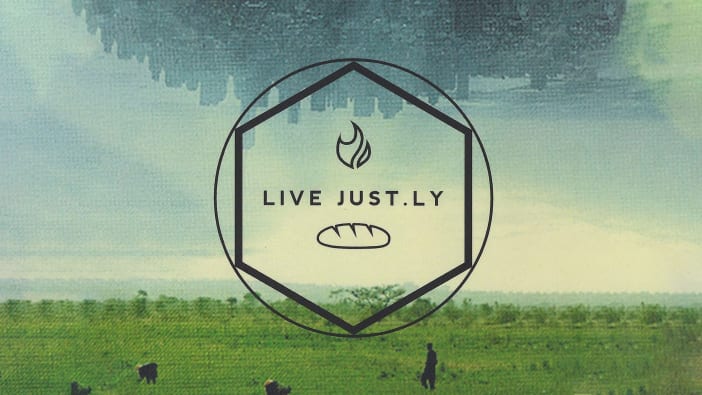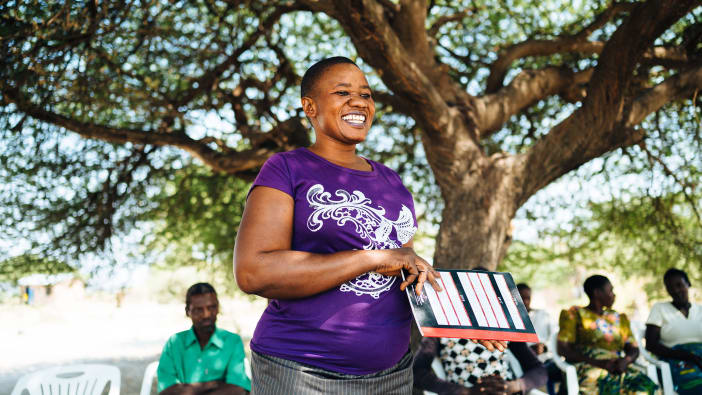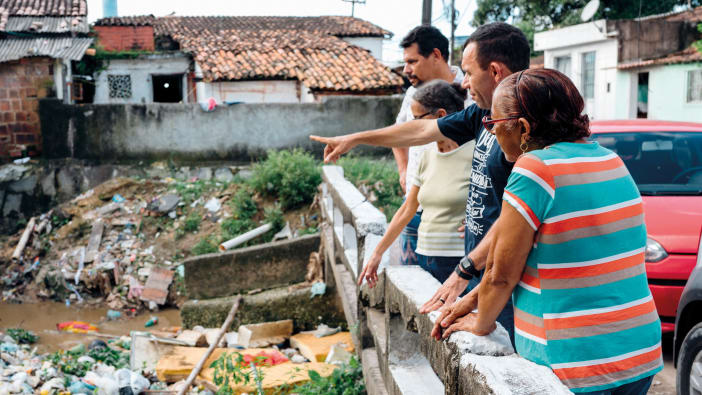When we Christians get involved directly in advocacy, whether our concern is to support the life of one individual or a whole community, our participation reflects the maturity and conscience of our shared faith. Individual salvation ceases to be our main aim. Advocacy is the start of a process where we become responsible for what God has asked of us from the beginning: to take care of the lives of our brothers and sisters.
We Christians can’t allow it to be ‘just other people’ who cry out for and uphold justice. Demanding justice shouldn’t make us feel guilty – it’s not doing it that should make us feel guilty for not doing as Jesus has commanded us.
Alexis Pacheco, Tearfund Regional Advisor, Honduras
Alongside the Batwa
The Batwa people in Burundi are the third largest ethnic group. Traditionally they have had few opportunities to receive education or healthcare and have no access to land for farming. They are pygmies and well known for their skills in pottery, but are usually regarded as a servant class. African Revival Ministries (ARM) have recently appointed a law student as an advocacy specialist. They are hoping to work with the Batwa people to help improve their situation in a number of ways, such as housing, schooling, healthcare, literacy training, further development of their pottery skills and church planting. Through the support and love shown between the ARM workers and the Batwa they hope to improve their self-confidence and ability to participate in wider society, without losing their own traditions and culture. Initially, adult literacy and health education have begun and ARM are now lobbying the government to encourage them to provide education for all Batwa children.
Challenging the system
In Cambodia the organisation CORD (Christian Outreach Relief and Development) co-operates with village level authorities. They have identified the need for communities and local authorities to target corruption. In one area, the community dug a canal as part of a Food for Work programme linked to the World Food Programme. When the sacks of rice they had been promised in exchange for this work arrived, they were underweight. In the past the same community had accepted 3kg per person when they had been promised 10kg per person.
Following meetings concerning the need to deal with corruption, this time the community refused to accept the rice until they were given the correct amount. The supervisor of the World Food Programme threatened to take the rice away until they signed the falsified receipt. The community continued to stand firm and the rice was sent away. Two weeks later the rice returned – this time with the correct amount – and throughout the country many local organisations reported that they were also now receiving correct amounts of rice. The community had challenged the system and, as a result, many others were benefiting.
Simon Batchelor
Crocodile teeth
There is the tale of a crocodile who bullied all the other animals, snapping and biting them to make sure he always got his own way. The other animals, even the larger ones, all lived in fear of the crocodile who had such a bad temper and such sharp teeth. Finally the day came when the animals realised that they all shared the same fear and that by working together they could do something. They decided that the next time the crocodile snapped at any one they would all shout at the crocodile together. The crocodile was so frightened by the noise and by being surrounded by all the angry animals that he slipped into the water and has stayed there ever since…
The taste of death
Tearfund partner Navajeevana are a special group of people who seek to live together in Christian communities, supporting each other as they seek freedom from drug addiction, or other life dominating issues. Raja, the leader of Navajeevana became a Christian in prison and since then has sought to follow Jesus in a very practical way. They are based in Galle, a coastal town in Sri Lanka.
Navajeevana wanted to respond to a major cigarette advertising campaign that was targeting the ports of Galle and Colombo in Sri Lanka. The international tobacco company was using a very high-tech sophisticated yacht as their main promotional strategy, coupled with the wide distribution of branded promotional materials. Schools were invited to take their children on board this yacht. It was felt that this was a case of clear exploitation that promoted a glamorous image of smoking.
Drug and alcohol prevention is well established in Sri Lanka, with various groups seeking to educate the population about the harmful effects of all forms of drugs. Navajeevana were very angry to hear of what was planned by this tobacco company. Raja, with the support of other members, mobilised the community to take action. For the benefit and protection of the children, they visited or spoke to schools and others to encourage them to cancel any proposed visits to the yacht. They decorated a bus to make it look like a yacht and drove around the area, performing street drama and mocking the cigarette company’s advertising slogans. Their proactive prevention campaign meant that when the yacht eventually arrived there was little interest in the expensive advertising campaign. Local people also became more aware of the real risks and costs associated with smoking. It is possible for a few motivated people to take on large international companies in their communities and have a significant impact for good.
Contributed by Paul Thaxter
Jubilee 2000 in jail
Seventy members of the Debt Relief Network in Nairobi, Kenya spent 24 hours in custody at Nairobi Central Jail in April after they were accused of holding an illegal procession. The members included two priests, eight Catholic sisters and four foreigners. The Debt Relief Network wants to bring Kenya into the global discussion of the debt burden on poor countries, and to seek the total cancellation of the debt that has become so oppressive for the poor.
Brother André commented that ‘a night in jail with that many friends becomes more like a party. In addition to us, there were about 60 street children in the jail. (For them this seems to be a regular occurrence, 365 days a year.) But this time they had fun in jail. Until they were separated from us, we sang and danced, we prayed and reflected, and told stories. The street children were then locked up elsewhere. Maybe our joyful spirit was considered contagious. We were 70 people squeezed into a room no larger than four metres by eight metres. Two windows provided ventilation. We were body to body all night! I will never forget it!
At one point the Officer in charge talked with the priests and sisters in the group, claimed he understood our purpose, had no problem with us and that we were free to go. However, when we asked what would happen to the others arrested with us, he said they would not be released. We then told him that neither would we go.
We were brought to court, charged, and released on a bond of Ks3,000 per person (about $50) and had to appear in court a few weeks later. A huge number of e-mails, faxes and letters poured into Kenya in protest. At the hearing, the Attorney General directed that the case be discontinued.
This is the day of freedom that the Lord has made for us – let us be glad and rejoice in it.’
Brother André Hotchkiss, SVD, JPIC Coordinator, Kenya









